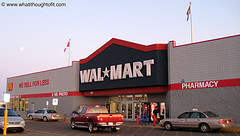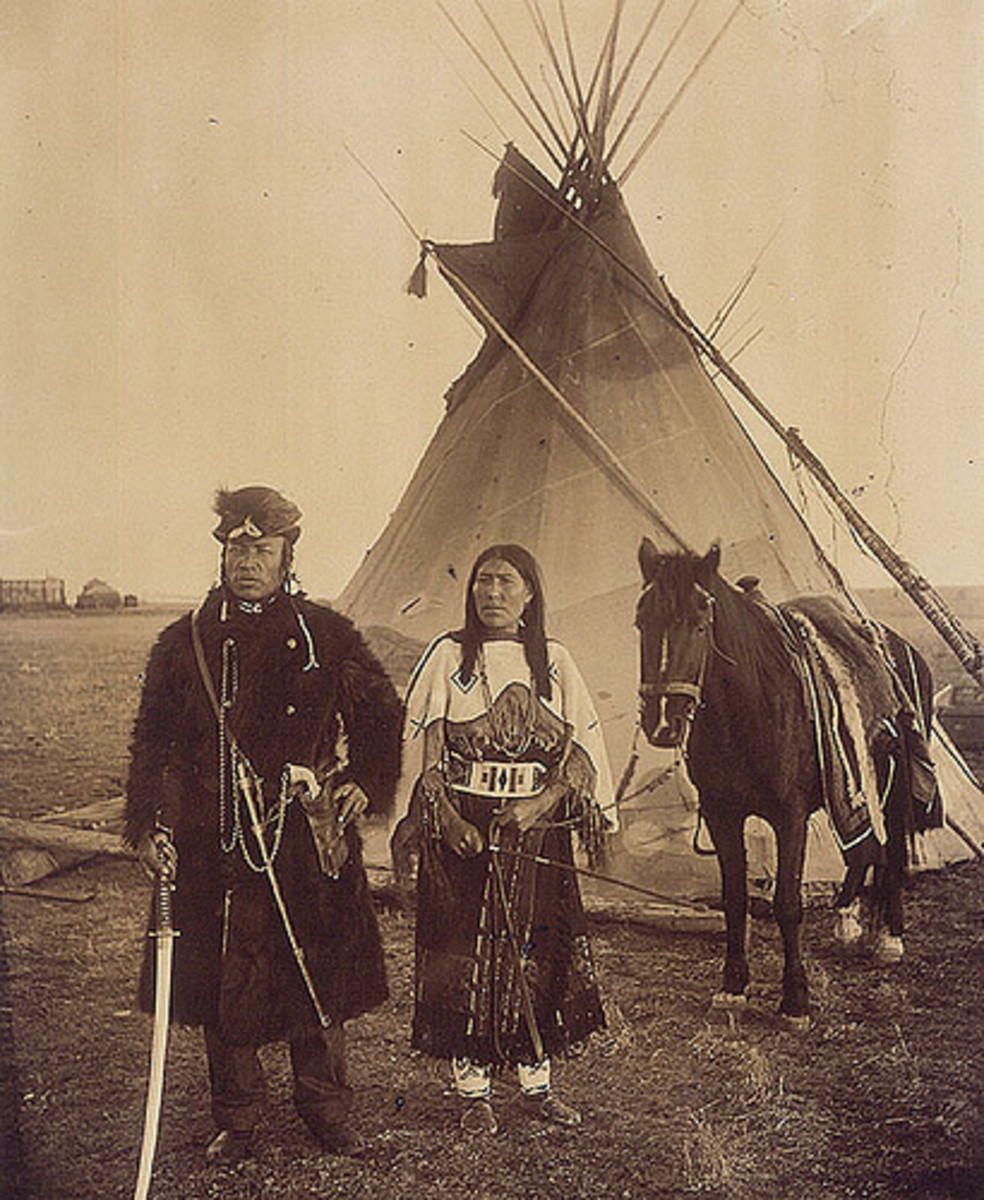Brooks, Alberta, Canada -- A typical rural community?
A Wal-Mart Store In Brooks, AB.

Is This Happening In Your Community?
JOBS! JOBS! JOBS! This is the main contention on people’s minds these days. Of course, in order to have a job, someone needs to provide the jobs, whether it is corporations, the government or small businesses. In our small, rural communities, jobs can be provided by many small retailing businesses or a few medium-size agricultural or manufacturing firms. This helps the local communities to survive. Mind you, people would like to have above poverty line wages and have the consumer pay as a little as possible for products.
Is the public getting what they want? Can our small communities thrive today without the large corporations coming in and running the “show”? Let us look at an example of a community -- Brooks, Alberta, a community that was struggling -- given a boost to by a large American conglomerate -- Iowa Beef Processors -- when it took over Lakeside Packers, a locally owned feed supplier and beef feedlot. IBP promised more jobs, more business and a better standard of living for everyone. The locals were struggling due to severe drought conditions resulting in very poor income for local farmers.
Why did IBP purchase Lakeside Packers? The company wanted to expand to the Canadian market, and was looking for an existing plant in a small community. Brooks was an ideal candidate. It was facing an economic crisis and the land was cheap and the town could provide cheap labour. Almost immediately, IBP expanded the Lakeside operations providing lots more employment but mostly for unskilled labour. The plant would be highly mechanized.
Here are the facts about Lakeside Packers. It was once dominated by middle-aged white men with a strong union. IBP has a fierce anti-union policy to help keep costs down. With no union, Lakeside Packers hired unskilled labour earning low wages -- $8.00 to $11.00/hour. These kind of wages didn’t attract the local citizens of Brooks but certainly attracted workers from outside Alberta. IBP advertised across Canada looking for workers. The ones that applied came from the Atlantic Provinces to a large extent.
IBP purchased Lakeside Packers in 1994 and within four years, 28,000 cattle were killed every week. (up two and half times as many as before) It supplies 30% of the Canadian market. The feedlot was expanded as well -- the largest in Canada -- with 75,000 head of cattle, up from 40,000. By 2000, the company was losing workers at a rapid rate – 40 to 50 workers every week. Why? Because wages were too low, the working conditions were horrendous, the work was hazardous, and the cost of living in Brooks had gone up. So, IBP advertise abroad – Asia, Central America, Africa and South America. Workers were glad to come to Brooks, where wages were higher than back home.
By April 2000, Brook’s population increased to 11,600 an increase of 30% in six years. Many foreigner came to Brooks for work. Presently, 9% of the population come from outside Canada. Over seventy languages are spoken at the plant.
So, what does this mean to the community? How has Brooks benefited from the rapidly expansion by a large American Corporation? Let’s look at the changes that Brooks is experiencing.
Along with an expanding large firm came other large outlets, like box-office stores (Wal-Mart), and fast-food chains. (McDonald’s) Fantastic! The economy must be booming! It is but not in the way you might think. Economic growth in Brooks was rapid, many people found work at the new retailing and shopping complexes. But, unfortunately, all of these wages were even lower than working at the plant – all part-time and no benefits as well. With minorities flocking to the town, pressure was placed for more housing, water and sewage pipelines, roads and entertainment establishment. This increase in demand also resulted in an increase in the cost of living. Everything became more expensive in Brooks – gas, food, housing.
Obviously, people who owned property, especially housing and urban developments were happy and encouraged by these new prospects. Money in their pocket. But for others? More and more people were relying on the food banks and home shelters.. Vacancy rates in Brooks are less than one per cent. New residents couldn’t find inexpensive places to live, and if they could, they would need to work two or three part-time jobs to pay for them. About 70% of the employees at the plant are from abroad, most local residents work in low paying jobs at the major retailing or fast-food outlets.
And they call this “progress”? “Bigger is Better?” Does this sound a little familiar? This is happening in many small, rural communities all across Alberta. Ask this question: does economic growth really provide what the locals want in their community? Support your local business and work together as a community. Don’t let the “big guys” take away a decent way of life.








